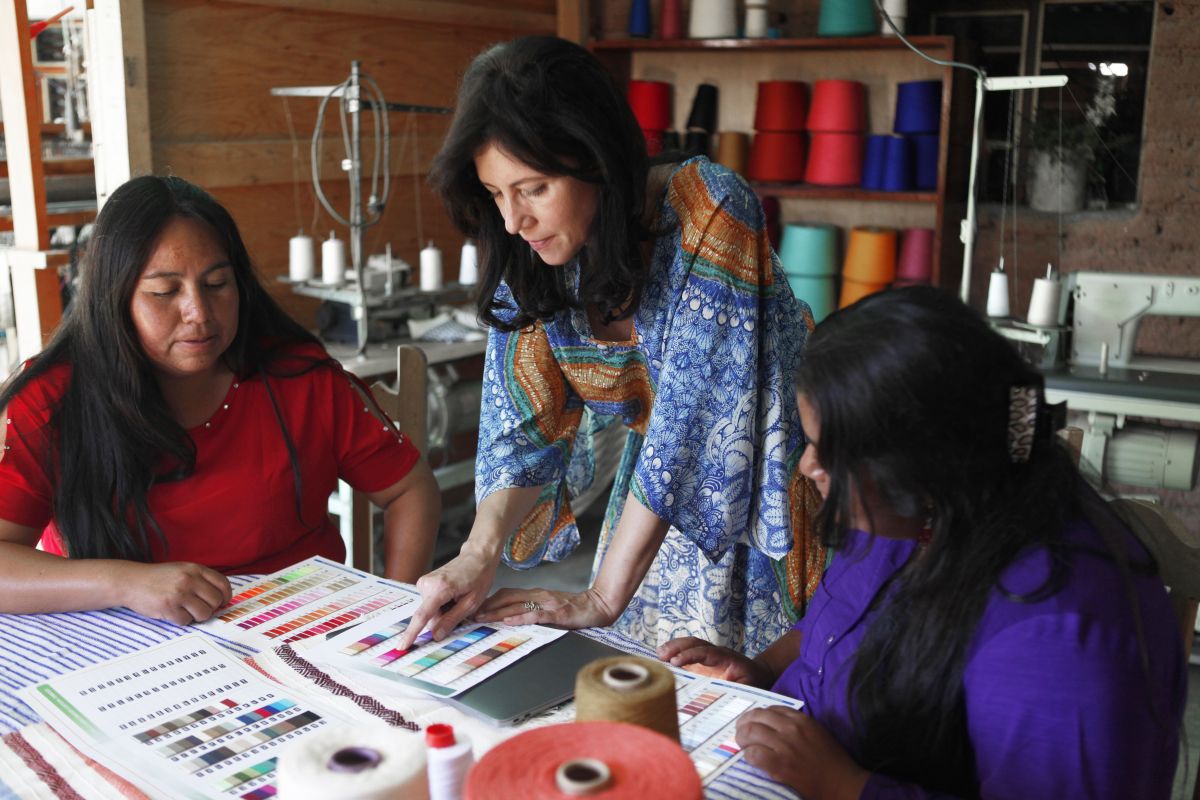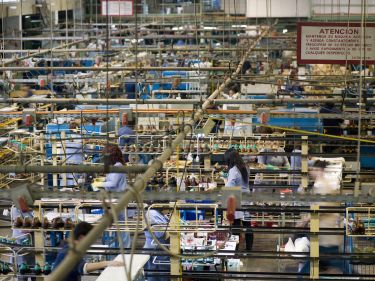
It's time for a new approach to international development cooperation
Between 25 November and 10 December 2021, the UN holds the ‘16 Days of Activism Against Gender-based Violence’ Campaign, and in response the TUC is calling for new, pro-worker, gender transformative approach to international development. A new TUC report shows how decades of economic restructuring has exacerbated inequality and left women workers behind - and how trade unions can help reverse the trend.
The violence in the system
For anyone that has been paying attention since 1980s, it didn’t take a global pandemic to reveal the deep, structural inequalities in the international order. However, the pandemic has starkly highlighted the global inequalities in access to vaccines, quality public services, social protection, and to decent work.
It is also clear that due to persistent patterns of discrimination, women are more negatively impacted by these structural inequalities. Women, for example, continue to be paid about 20 per cent less than men across the globe and have less access to social security. They carry out three times more unpaid care work than men. They are losing jobs faster in the pandemic due to more insecure work in sectors most affected, and in Africa, 90 per cent of women workers are in the informal economy. Women workers in supply chains are more vulnerable to sexual harassment and violence, having limited bargaining power and trade union representation. And in this context, women are more reliant on good quality public services in economies where those services have disintegrated under the impact of privatisation and profiteering.
Therefore, the definition of gender-based violence cannot be limited to the intimidation, exploitation, and abuse which many women experience as daily facts of life. It must include the structurally determined violence which conditions the economic and social lives of women across the Global South.
The conspicuous challenges for developing economies to withstand the onslaught of the global health crisis, and to address the question of gender-based violence, pose serious questions for the field of international development. What about past approaches has failed so badly?
Challenging policy assumptions
It will come as no surprise that, according to the United Nations, the world is “tremendously off-track” for meeting the internationally agreed Sustainable Development Goals. This includes SDG 5 on gender equality and SDG 8, which calls for decent work for all.
The reason is clear enough. The structural, macroeconomic changes implied by the fulfilment of the SDGs are in direct opposition to the process of neoliberal globalisation pursued and enforced on behalf of wealthy nations by large International Financial Institutions like the International Monetary Fund (IMF) and the World Bank.
The contrast between development and underdevelopment which characterises the Global North/South relationship is neither accidental nor unplanned. It is a legacy of colonialism which relegates low wage, commodity producing economies to the Global South, while concentrating more advanced economic activity in the Global North.
International development policy which promotes unfettered ‘market access’ for private finance to developing economies, often at the expense of public sector investment, has promoted a form of development which looks something like a watch in the process of losing time. Even while the hands move forward, the gap between the real time and what is visible on the face of the watch continues to expand.
This explains the paradox of the most resource rich countries also being the poorest. International development promotes policies designed to extract wealth, not share it. Examples of such policies include an a priori preference for privatisation of state assets, lowering of trade barriers, and liberalisation of labour markets. These policies deprive developing countries of the policy tools and state capacity to advance sustainable development, therefore depriving workers of the security, rights and living standards that are their due.
This so-called ‘economic restructuring’ is imposed on developing countries by international creditors via conditional access to finance. Considering the catastrophic impact of such a development regime, where in 2020 64 lower-income countries spent more on debt servicing than on health, the core assumptions which underpin economic restructuring are rarely scrutinised by policymakers.
The way forward
The global trade union movement is the largest democratic civil society institution in the world. Global unions are connected by formal institutional ties, organised on a regional, sectoral, and worldwide basis. This is important, because the problems of underdevelopment and exploitation are also internationally connected.
The collapse in the share of wealth going towards wages, as opposed to profits, has impacted workers in developed and developing economies alike. The aggressive ‘liberalisations’ imposed on the Global South have, in fact, mirrored attacks on social welfare and trade union rights in the Global North.
And the situation is getting worse. According to the ITUC, “abuses of the right to strike, the right to establish and join a trade union, the right to trade union activities and civil liberties and the right to free speech and assembly are at an eight-year high."
Policies which may be highly lucrative for international corporations and local oligarchies are not just bad for workers in the Global South, but they promote a ‘race to the bottom’ on international standards which also impoverishes workers in the Global North. Thus, the extremes of abuse inflicted on, for example, women workers in garment factories in Bangladesh and Myanmar, ultimately rebounds up the supply chain, forcing workers in the West to accept lower wages and poorer conditions under threat of outsourcing and offshoring.
The first step to arresting, and ultimately reversing, this trend towards extreme inequality is promoting trade union growth in the developing economies. As well as allowing workers to shield themselves from direct abuse and discrimination in workplaces, trade unions are the basis of worker engagement with government and business in social partnership - negotiating, upholding, and enforcing social rights like gender equality, health and safety at work, minimum living wages, and access to public services.
The social contract
Trade unions therefore not only act as a brake on the social and economic violence which degrades women in the developing world, they also provide the mechanism for promoting women into positions of leadership and decision making. It has been remarked that countries with female leaders seemed, overall, to respond better to the pandemic but, as research has shown, this stems from the fact that countries with a strong social contract and reduced gender inequality are structurally better equipped to manage shocks like covid-19.
Strong trade unions are the key social actors who enforce a strong social contract through collective bargaining and social dialogue. This creates the conditions to empower women, which in turn empowers everyone - for example by holding business and government to account on international standards, including ILO Convention 190 on gender-based violence and harassment. This is what is meant by gender transformative development.
Let workers speak for themselves
Although serious change is needed at the institutional level, there is much that can be achieved through solidarity action initiated by unions directly. Recent TUC Aid projects in Iraq, Brazil, and Bangladesh have trained women workers on issues such as women’s rights, bargaining, organising, and Convention 190, with some being elected to positions of union leadership, enabling them to better defend workers’ rights and women’s rights specifically.
However, the lesson of the last 40 years of failed development policy nonetheless speaks to the need for reform at the structural level. The first step is listening to trade unions when they communicate the real, lived experience of the people impacted by top-down 'modernisation’ and aid projects - and including unions as legitimate social partners in policy-making processes and programme development. It also means empowering women workers through organising, through education about their rights, and by building their capacity to bargain collectively with their employers within the framework of robust, sustainable collective bargaining structures.
Trade unions provide the institutional basis for rethinking the ideological framework of the entire field of international development, and for leveraging governments into the necessary task of reforming the IFIs. The new TUC report on Trade Unions and International Development provides a detailed outline of what needs to be done, and how trade unions can help do it.
Stay Updated
Want to hear about our latest news and blogs?
Sign up now to get it straight to your inbox

